FORT BENNING, Ga. -- Murky swamp water, cold temperatures and a heavy downpour weren't enough to dispel the motivation of more than 140 U.S. Army Ranger School students in their final week of training Tuesday with the 6th RTB at Camp Rudder near Eglin Air Force Base, Fla.
"I've realized I can embrace the 'suck' factor," 2nd Lt. Todd Klinzing-Donaldson said. "The hardest part of today was the weather but the rain hasn't bothered me as it would have before. There were times during the mountain phase when it rained all day like today and it was horrendous. But now I know there's more mentally I can overcome."
The Ranger School is split into three phases: Benning, mountain and swamp.
"Ranger School is designed not just to make a guy tactically and technically proficient but also to put a leader in a position where he has to lead in the most uncomfortable situations, whether it's in the swamp or the mountains," said Command Sgt. Maj. Lawrence Elder, senior NCO for the 6th Ranger Training Battalion.
The 18-day final phase focuses on training students for missions in coastal and swamp environments while overcoming the challenges of severe weather, terrain, limited sleep, food deprivation, and mental and physical fatigue.
On day 11 of swamp training, students hiked miles through forested swampland to engage an enemy camp, accompanied by Maj. Gen. Michael Ferriter, commanding general of Fort Benning, Col. Thomas Macdonald, garrison commander, and the 6th Ranger Training Brigade command team, Lt. Col. Matthew Seifert and Elder.
Typically, day 11 consists of a 400-meter walk through waist-high swamp water, known as the "boiler," to reach the intended target, but water or air temperatures below 50 degrees create a potential for hypothermia so training was altered, Seifert said.
Instead, the students hiked nearly eight kilometers, skirting the deeper areas of the swamp to reach the target on the other side.
The modified training ends up being more of a challenge, Seifert said.
Despite the additional trek and inclement weather, motivation remained high among the students, said Sgt. 1st Class William Clancy, a primary instructor.
"By this phase, it's pretty uncommon to see people quit," he said. "What's going through their heads is that they're almost done. Mental and physical fatigue may overtake them but we tell them to block it out and let the brain tell the body what to do."
Students average four hours of sleep a night, he said, to prepare them for mental and physical stresses during deployment.
"Many times overseas you are out on long patrols day and night," he said. "So if they deal with the lack of sleep issues here in training, they will be better prepared down the road. They will know what their breaking point is and what it isn't."
Hiking alongside the students a good portion of the way, the commanding general said the training stirred memories of his final weeks of Ranger School.
"Standing about halfway to our knees in the water brought back memories of when I was doing the same thing," said Ferriter, who completed the school in December 1983. "Seeing the professional Ranger instructors in charge doing the right things was inspiring to me and lets me know we are in good shape down here." Each student has to decide they won't quit or let one of their comrades fall, and that's the best part of this course, he said.
Following an air-assault insertion today and boards next week, the students are set to graduate Friday.
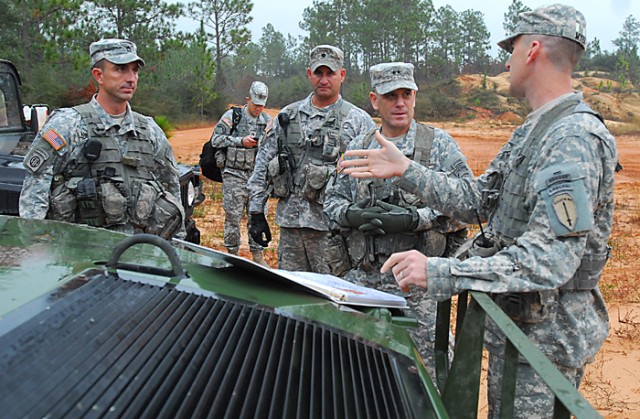
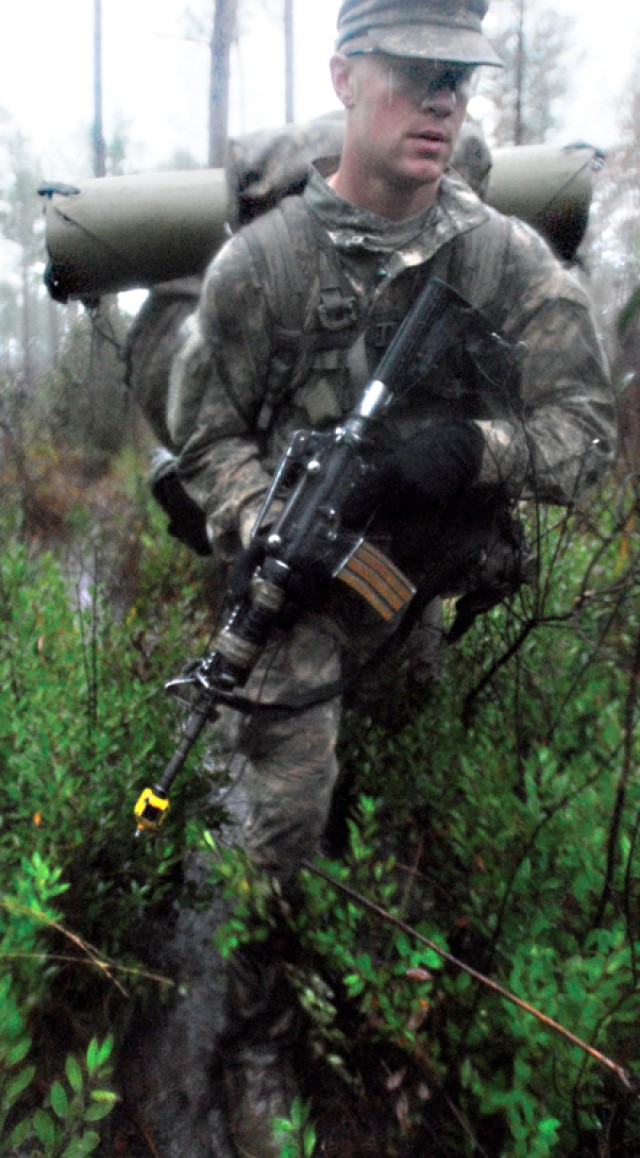
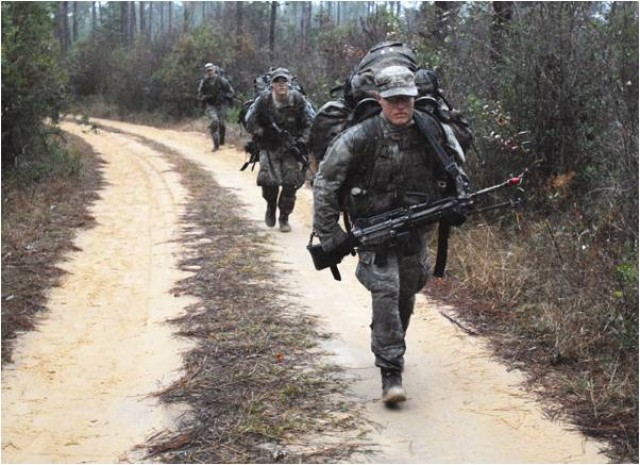
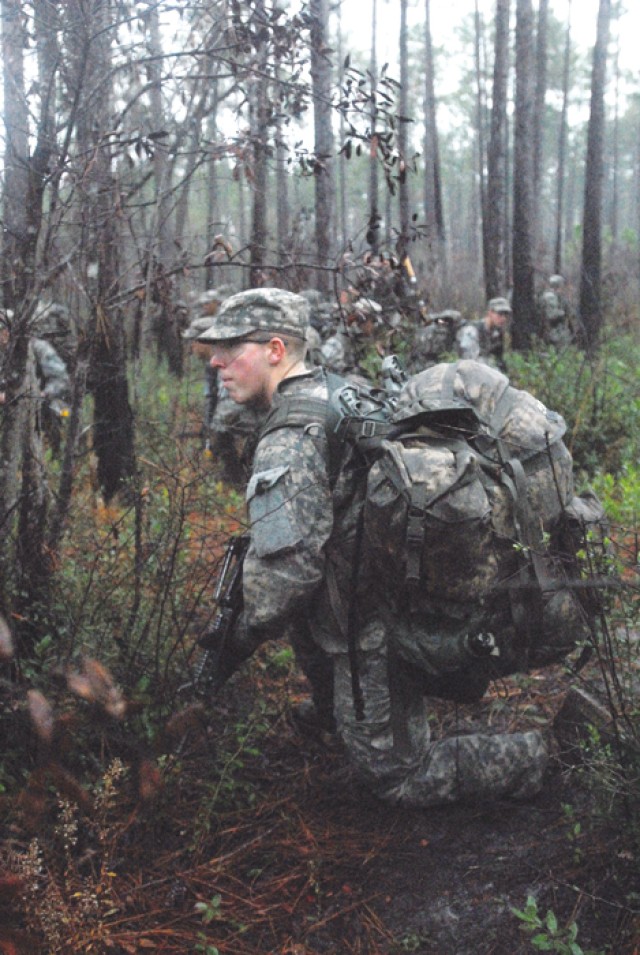
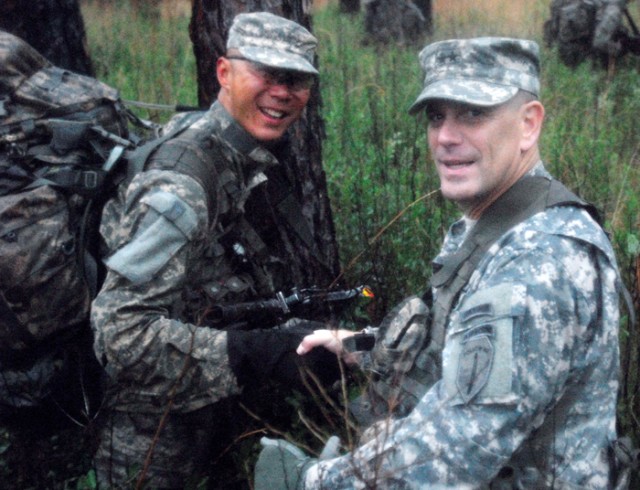
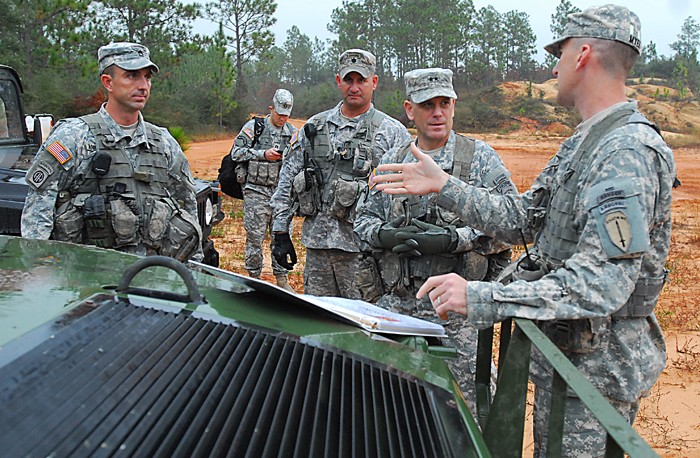
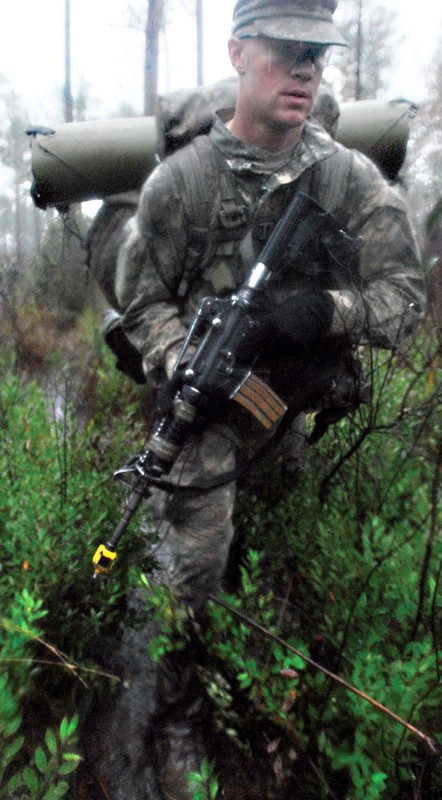
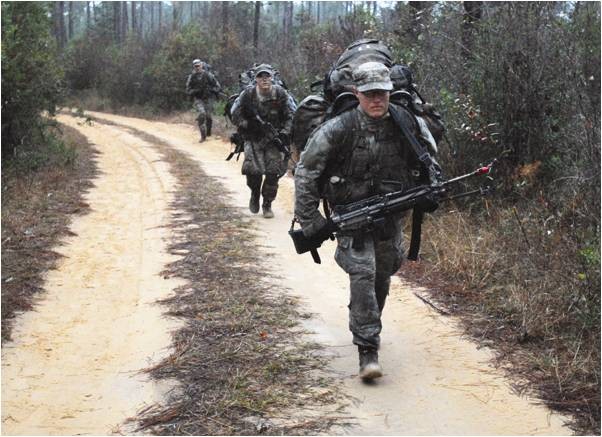
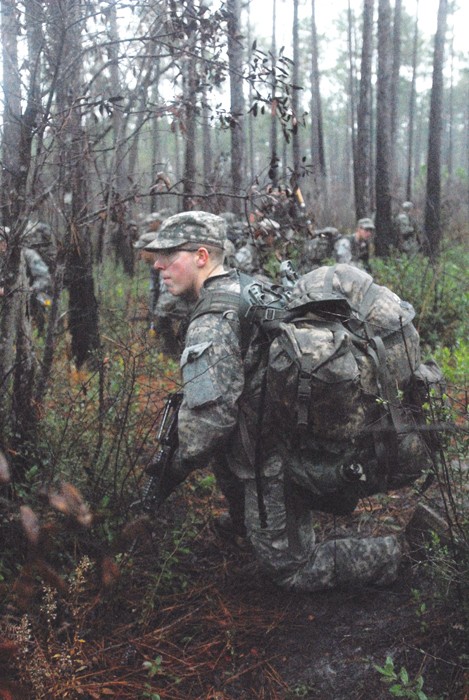
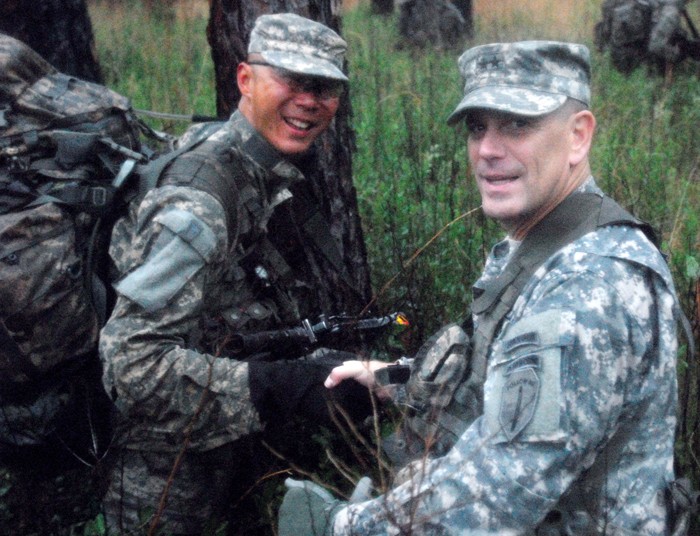
Social Sharing